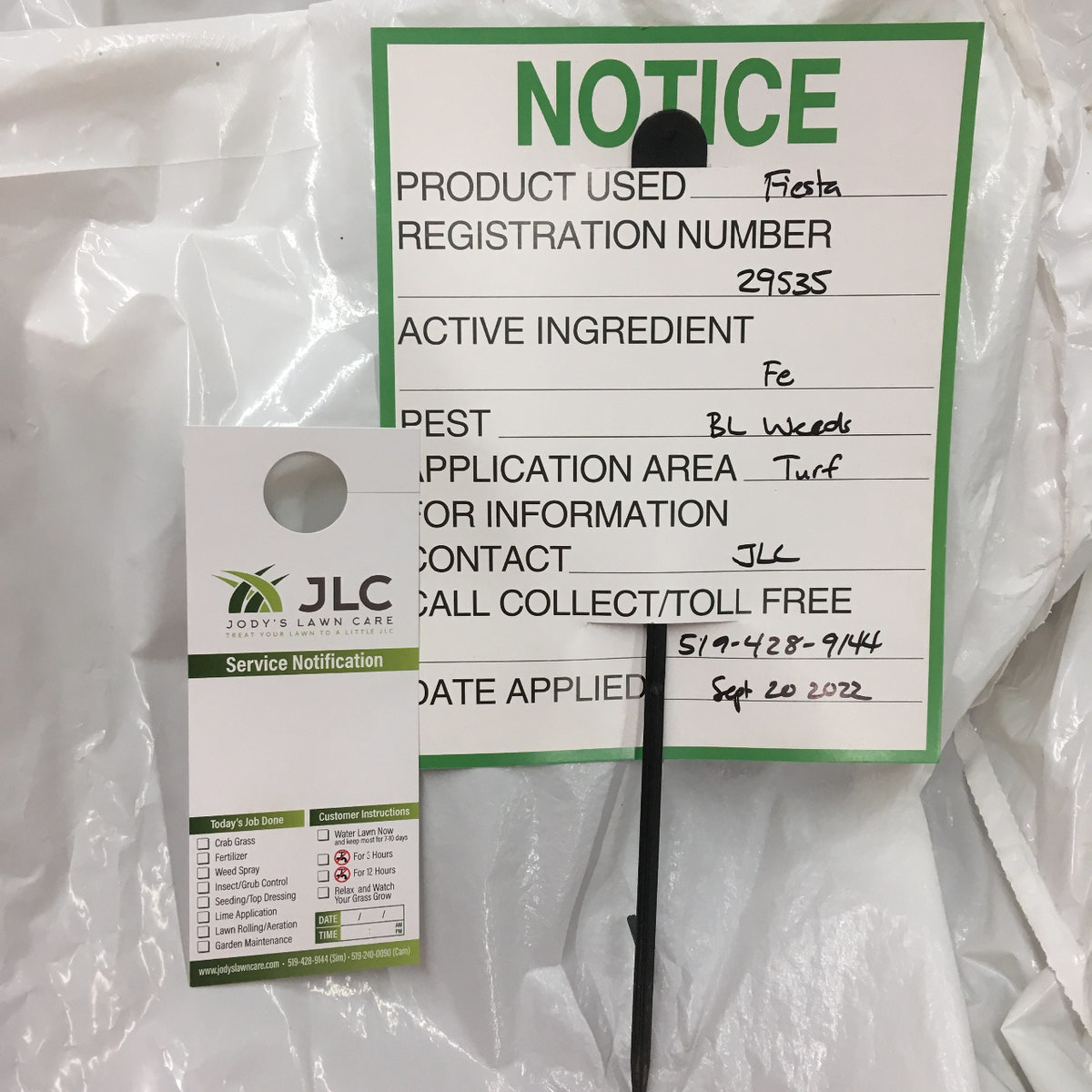|

Although lawn care seems a fairly straight forward profession, there are more hiccups than one first realizes.
The first step to establishing this as a viable income is to determine how you will price yourself. We at JLC have discovered that there is no real way to estimate a price for the work to be done other than going to see the property and assess the amount of work/time/manpower necessary to complete it. Other companies may be comfortable charging an hourly rate, but for us that can lead to expensive, time consuming, jobs that may have been better planned otherwise. As such, all our estimates are custom built based on the property and customer wishes.
Beyond developing your own pricing system to ensure that you are compensated fairly for your work, and able to pay the employees who work for you, there are rules and regulations to adhere to.
Ontario has a very strict stand on the use of pesticides. The use of pesticides on residential/commercial properties for "cosmetic" use is a controlled and limited purpose. Since 2009 Ontario's Cosmetic Pesticide Ban (CPB) has been in place. The objective of the CPB is to reduce public exposure to pesticides, and applies to cosmetic use of pesticides including use on lawns, gardens, school yards etc. In our sector (landscape) the only exceptions to this ban are "the control of plants that are poisonous to humans by touch including: – Poison ivy – Poison sumac – Giant hogweed – Wild parsnip" -- but even in these cases pesticides containing only Class 10 pesticide ingredients [1. GLUFOSINATE AMMONIUM 2. GLYPHOSATE 3. ISOPROPYLAMINE (SALT OF) PRESENT AS GLYPHOSATE 4. GLYPHOSATE, PRESENT AS DIMETHYLAMINE SALT] may be used. We do not typically engage in the control of these plants, as they and the products used to control them, present a health and safety risk to our employees.
Products such as Round-Up and Par III are banned for cosmetic use due to the potential affects of their ingredients. Although these are very successful products, they fall under the CFB and are not to be used for cosmetic purposes. These products stand out from more natural herbicides due to their strong chemical smell; they are corrosive to eyes and should not he touched or inhaled, and are toxic to aquatic invertbrates, and should never be used on residential properties.
Our spray team members have completed their pesticide certification to ensure that all products we use are used properly and safely. We are only able to use natural-based herbicides such as Fiesta to control weeds.
This leads us to ensuring that all safety measures are followed, including wearing appropriate high-vis wear and PPE, long pants, and (depending on the task) safety footwear. Safety training in first aid and WHIMIS are provided for our employees as well. We have an extensive safety policy manual that is reviewed annually to ensure our employees are familiar with it and it is up-to-date. These can be boring tasks, but are imperative to protecting the welfare of our staff.
When our company first started, with Jody and his single lawn mower, a lot of these concerns were not on the radar. However, as our company has grown, not just in clientele but with employees and a new variety of services, our policies have grown to encompass this new sphere of service with safety and reliability.
All of the above are the initial framework for a proper lawncare company - but anyone interested in this line of work need to know there is endless learning, and it is a service industry - your demeanour with clients is pivotal. The biggest "do" of lawncare is to treat your employees and clients with respect, honesty, and kindness.
|